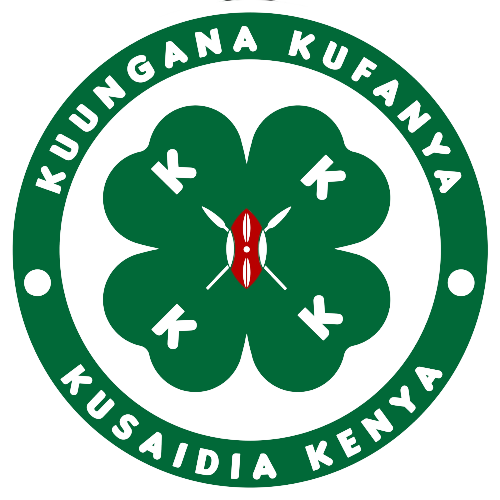PART 1
Questions in this part are about the club (questions to be administered in at least two rounds per team)
Team 1: When were 4-K Clubs started in Kenya?
Answer: 3rd April 1962
Team 2: What does the first “K” stand for in the 4-K Club emblem?
Answer: Kuungana
Team 3: What does the 2nd “K” stand for in the 4-K Club emblem?
Answer: Kufanya
Team 4: What does the 3rd “K” stand for in the 4-K Club emblem?
Answer: Kusaidia
Team 1: What does the 4th “K” stand for in the 4-K Club emblem?
Answer: Kenya
Team 2: Name your 4-K Club patron?
Answer: Give the Name
Team 3: What is the 4-K Club motto?
Answer: “Learning by doing” “ Kujifunza kwa Kufanya”
Team 4: What is the 4-K Club pledge?
Answer: Ninaahidi kuungana, kufanya, kusaidia Kenya
Team 1: Why is green the 4-K Club favourite colour?
Answer: Green is symbolic of youth, life and growth. Green is nature’s most common colour
Team 2: How many voluntary leaders does every 4-K Club need?
Answer: At least 2. One man and one woman
Team 3: How many elected officials does a 4-K Club have?
Answer: Four
Team 4: What is the backbone of 4-K Club?
Answer: The Project. A project on growing a vegetable or field crop or keeping livestock or fish farmin
PART 2
The questions provided here are samples and should be varied depending on the different agricultural activities (crops, livestock and fisheries) in the area. Questions in this section cover project areas
Team 1: What does a 4-K Club project involve?
Answer: Growing of crops, keeping livestock or fish farming
Team 2: Who should you ask for advice on agriculture in your area?
Answer: Your agricultural extension service provider, Science teacher or Agriculture teacher
Team 3: What is the importance of vegetables in our diet?
Answer: Provides vitamins, fibers, protects body against diseases, and helps in digestion
Team 4: What should you do after transplanting crops?
Answer: Water them, mulch, provide shade
Team 1: When plants are uprooted from the nursery, how do you prevent damage to the roots?
Answer: Uproot plants with soil attached to the roots
Team 2: What is the gestation period of a rabbit?
Answer: 28-33 days
Team 3: What is the gestation period of a cow?
Answer: Nine months or 280 days
Team 4: How often should cattle be dipped or sprayed?
Answer: Every five to seven days
Team 1: Why do we dip or spray cattle in Kenya?
Answer: To kill ticks and control tick borne diseases
Team 2: How many milliliters are there in a litre?
Answer: one thousand
Team 3: What do we get from fish?
Answer: Protein, meat, calcium, omega 3, fish oil, fish leather, animal feeds/fish meal
Team 4: Name any four types of fish
Answer: Tilapia, Dagaa, Nile perch, Gold fish, Jelly fish, Star fish, Tuna, Cat fish, Kingfisher
PART 3
This section covers questions on general knowledge.
Team 1: What is the importance of trees?
Answer: Shade, timber, fruits, fresh air, furniture, soil and water conservation, source of rain, beauty
Team 2: What is HIV? What is AIDS?
Answer: HIV is Human Immune Deficiency Virus , AIDS is Acquired Immuno Deficiency Syndrome
Team 3: What is UN? What is FAO?
Answer: UN is United Nations, FAO is Food and Agriculture Organization
Team 4: What are the different levels of Government?
Answer: National and County Government
Team 1: Who is the governor of your county?
Answer: Give the name
Team 2: What is the importance of recreation?
Answer: Relaxation, learn from each other, keeping fit /healthy, self-esteem
Team 3: Name any five counties in Kenya?
Answer: Give the name
Team 4: Name 3 different ways of communication
Answer: Radio, TV, Phones, Newspapers, internet / emails, letters, horns, bells, drums, whistles, other communication sounds
